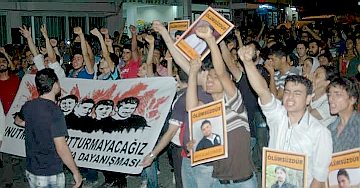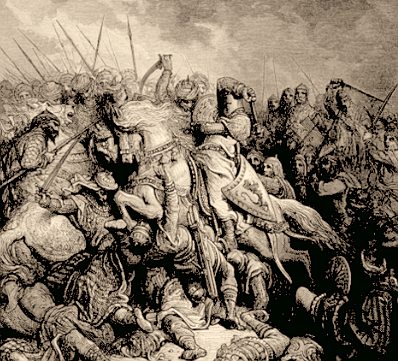 Last week Takuan Seiyo weighed in on the controversy over Diana West’s book American Betrayal. The comment thread that developed on his post is quite extensive, and ranges over a lot of topics related to Soviet Communist penetration of the United States government during World War Two.
Last week Takuan Seiyo weighed in on the controversy over Diana West’s book American Betrayal. The comment thread that developed on his post is quite extensive, and ranges over a lot of topics related to Soviet Communist penetration of the United States government during World War Two.
One of the issues raised concerns the debate over where a second front in Europe would be opened. Ms. West’s book presents extensive evidence that Soviet agents or sympathizers in the American government helped influence the final decision to land in Normandy and advance through France. A major alternative that was considered and rejected was a landing at the head of the Adriatic with an advance through the Balkans to Vienna.
Ms. West was not advocating for either option, but simply presenting the evidence that agents of influence had in fact helped sway the strategic decision.
Many commenters seemed to assume that she believed the “Italian option” would have been better. This is an example of confusing descriptive text with normative text. I have often run into the same problem myself — if I simply describe the arguments for a controversial position, without polemical embellishment or condemnatory phrasing, readers assume that I am advocating that position. Which I am not — if I advocate for something, you’ll know it: I will expressly state my advocacy in no uncertain terms.
Ms. West left a comment on Takuan’s essay clarifying the issue, but the post has now drifted so far down the page that many people will not see it. She asked me to reproduce it as a separate post, and I am happy to do so here.

From Diana West:
There is this erroneous notion abroad that in I formulate military strategy in American Betrayal. Not so! I am not a military strategist, nor do I claim to be. In my examination of Soviet influence on the Allied policy-making chain I consider the arguments posed by leading military strategists of the day — many of whom, in this case, championed continuing Allied efforts in southern Europe.
To wit (from pp. 263-264):
The decision to abandon Italy as an expanding, leading front at the end of 1943 made very little sense—unless, cynically, the true objective was to ensure that Central and Eastern Europe remained open for Soviet invasion. Then again, maybe that’s putting things too crudely, too harshly. Let me rephrase: The advantages to enlarging upon Anglo-American gains in Italy were obvious. There was no good strategic objective to be served by virtually abandoning this theater. Not because I say so. The top U.S. commander of strategic bombing in Europe, Gen. Carl Spaatz, said so, too. Capt. Harry C. Butcher recounted Spaatz’s views as expressed to Harry Hopkins on November 23, 1943, in the run-up to the Cairo Conference.
‘Spaatz didn’t think OVERLORD was necessary or desirable. He said it would be a much better investment to build up forces in Italy to push the Germans across the Po, taking and using airfields as we come to them, thus shortening the bombing run into Germany. He foresaw the possibility of getting the ground forces into Austria and Vienna, where additional fields would afford shuttle service for bombing attack against the heart of German industry, which has moved into this heretofore practically safe area.’ …
p. 264:

 An African American Buddhist and former Naval reservist named Aaron Alexis went on a shooting spree in the Washington Navy Yard this morning, killing twelve people and injuring at least twelve more. Police officers eventually shot and killed Mr. Alexis. No motive for the attack has as yet been determined. The incident prompted congressional Democrats to renew their calls for stricter gun control.
An African American Buddhist and former Naval reservist named Aaron Alexis went on a shooting spree in the Washington Navy Yard this morning, killing twelve people and injuring at least twelve more. Police officers eventually shot and killed Mr. Alexis. No motive for the attack has as yet been determined. The incident prompted congressional Democrats to renew their calls for stricter gun control.





